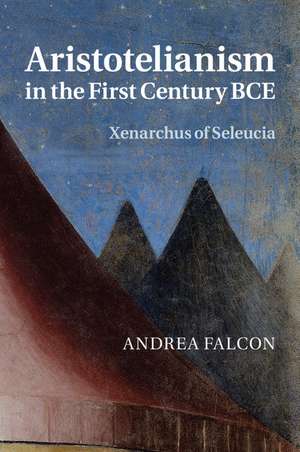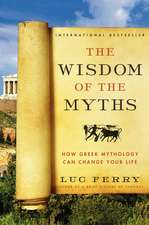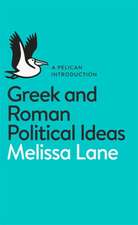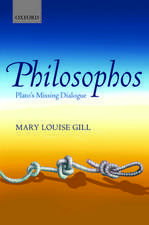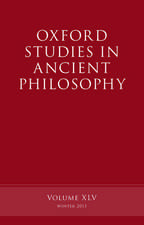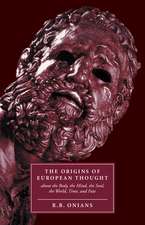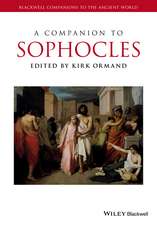Aristotelianism in the First Century BCE: Xenarchus of Seleucia
Autor Andrea Falconen Limba Engleză Paperback – 14 sep 2016
| Toate formatele și edițiile | Preț | Express |
|---|---|---|
| Paperback (1) | 237.02 lei 6-8 săpt. | |
| Cambridge University Press – 14 sep 2016 | 237.02 lei 6-8 săpt. | |
| Hardback (1) | 437.40 lei 6-8 săpt. | |
| Cambridge University Press – 14 dec 2011 | 437.40 lei 6-8 săpt. |
Preț: 237.02 lei
Nou
Puncte Express: 356
Preț estimativ în valută:
45.37€ • 49.30$ • 38.13£
45.37€ • 49.30$ • 38.13£
Carte tipărită la comandă
Livrare economică 21 aprilie-05 mai
Preluare comenzi: 021 569.72.76
Specificații
ISBN-13: 9781107525863
ISBN-10: 1107525861
Pagini: 240
Dimensiuni: 152 x 228 x 13 mm
Greutate: 0.33 kg
Editura: Cambridge University Press
Colecția Cambridge University Press
Locul publicării:New York, United States
ISBN-10: 1107525861
Pagini: 240
Dimensiuni: 152 x 228 x 13 mm
Greutate: 0.33 kg
Editura: Cambridge University Press
Colecția Cambridge University Press
Locul publicării:New York, United States
Cuprins
Introduction; 1. Xenarchus: the man, his work, and his influence in antiquity; 2. Texts, translations, and notes; Conclusion; Appendix. Vestiges of Xenarchus in the Middle Ages.
Recenzii
'Xenarchus of Seleucia was a contemporary of Strabo who was active as a teacher of philosophy in Alexandria, Athens and Rome at the time of Augustus. Falcon's study is the first monograph to be wholly dedicated to this Peripatetic writer, from whom a few fragments survive … a valuable tool for the study of a period of philosophical activity that is still surrounded by mystery, and contributes to the better understanding of the hermeneutical strategies towards Aristotle's text that preceded the development of the commentary tradition in the Imperial period.' Bryn Mawr Classical Review
Notă biografică
Descriere
A full study of the surviving evidence for Xenarchus of Seleucia, one of the earliest interpreters of Aristotle.
